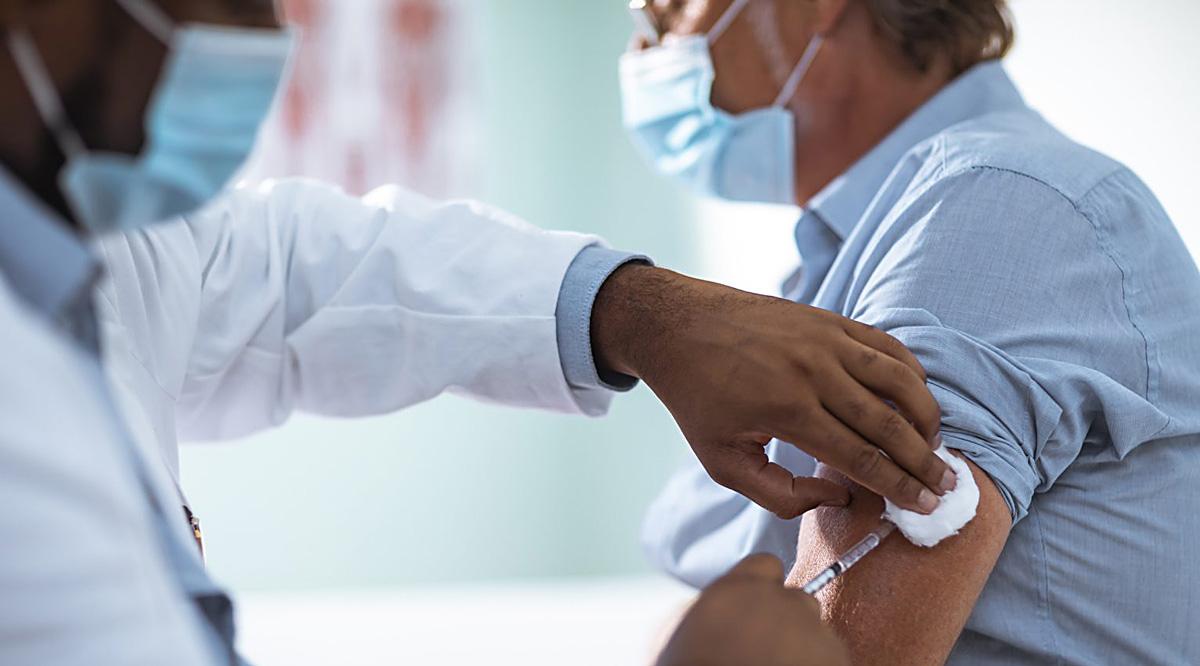At St. John’s Health, which serves the resort town of Jackson Hole, Wyoming, employees can earn a thank-you bonus of $600 for getting a COVID-19 vaccine. It’s a way to encourage every employee to be vaccinated and a signal to tourists and residents to roll up their sleeves, says Karen Connelly, MBA, chief communications officer for the independent health system.
Of the hospital’s 840 employees, 74% are currently vaccinated, which is higher than the rate in Teton County (56%) and the state of Wyoming (26%).
“We had a unique opportunity to make a push in advance of our summer crowds arriving to be a role model for the type of behavior we’d love everyone to follow,” Connelly says.
St. John’s Health started offering bonuses in April and joins the small ranks of health care systems, both large and small, offering cash incentives to staff for vaccinations.
Many others have considered the strategy. Here are some things to consider if bonuses or other incentives are on the table as a potential vaccination rate booster at your institution:
Are vaccination bonuses the best use of your budget?
Some health systems that ultimately decided not to offer incentives say they are prioritizing spending on other pandemic-related measures. Selwyn Vickers, MD, FACS, senior vice president of medicine and dean of the University of Alabama at Birmingham School of Medicine, says his institution considered cash bonuses when vaccines first came out. But with a current staff vaccination rate of about 80%, the UAB health system has opted to allocate funds to other pandemic needs, such as cash bonuses for newly hired nurses and higher hourly rates for all nurses.
“We’re down nearly 850 nurses,” Vickers says. “They’re dealing with exhaustion and stress.… That’s where we’ve spent our financial incentives.”
Do bonuses send the right message, given your institution’s culture?
Other health systems “may worry about optics. What does it mean if I have to pay nurses, doctors, and staff to get vaccinated,” says Keisha Ray, PhD, an assistant professor with the McGovern Center for Humanities & Ethics at UTHealth in Houston, which has opted not to offer bonuses for vaccination. “You look at health care institutions and they are supposed to be exemplars. They’re supposed to tell others how to act.”
If employees are only getting vaccinated because they’re getting paid, Ray says, that could be viewed negatively by people outside the institution.
Could your bonus program result in staff feeling coerced into getting vaccinated or revealing protected medical information?
The Equal Employment Opportunity Commission (EEOC) says that under the Americans with Disabilities Act, employers may offer incentives to staff for getting vaccinated. But rewards or penalties for vaccination cannot be “so substantial as to be coercive.” Before employees are vaccinated, they may have to answer screening questions related to disability and “a very large incentive could make employees feel pressured to disclose protected medical information,” the EEOC guidance says.
How long are you willing to offer bonuses?
Offering bonuses as a short-term strategy may not result in high final vaccination rates but may help get things going. At the Gracedale Nursing Home in Nazareth, Pennsylvania, bonuses were offered to staff in late December for anyone receiving the vaccination through the end of January. In the end, Gracedale paid bonuses of $750 each to about half its staff, or 320 employees.
Lamont McClure, county executive for Northampton County, says administrators at the county-run nursing home had heard rumblings early on that staff might be reluctant to get vaccinated. The cash bonuses, he says, helped to get the ball rolling at the largest nursing home in Pennsylvania.
“It was a novel vaccination to battle a novel virus,” McClure says. “There was a great deal of concern for the first recipients of the vaccines.”
To date, the vaccination rate at Gracedale remains at half the staff, a level McClure calls “disappointing.” He would endorse the idea of resuming the cash incentives and says it is not too late for other health care providers to consider using bonuses as a tool. The key, he adds, “is how much you are going to pay employees.”
Who are you trying to reach, the reluctant or the busy?
In general, enticements like free donuts or beer or subway fare-cards only work for people already considering the vaccine, says bioethicist Ray. “Incentives only help people who want the vaccines, but haven’t prioritized them in their lives,” she says.
How do bonuses fit with your plan to reach the vaccination finish line?
At Houston Methodist, employees were offered a $500 “hope bonus” at the start of the year as part of a wider incentive program. When the incentive ended in April, 85% of the health system’s 26,000 employees had been vaccinated. Houston Methodist has since mandated vaccination for all staff by June 7 and currently reports a vaccination rate of 99%.
“You have to look at the culture and environment” of a health system when thinking about offering COVID-19 vaccine incentives, Vickers says. “I don’t think they’re uniformly effective. But in the right setting and with the right messaging, they can be.”
